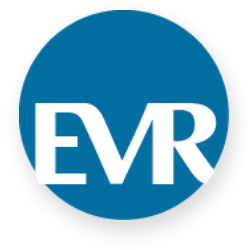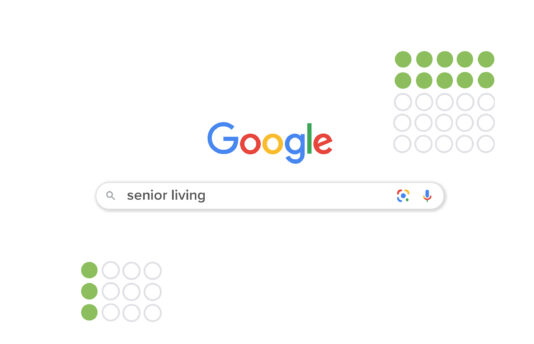How do people choose a hospital or primary care provider? Different generations have distinct considerations and preferences, and understanding these generational differences is crucial for healthcare providers aiming to attract new patients and foster patient loyalty.
Members of the Silent Generation, Baby Boomers, Gen Xers, Millennials and Gen Zers consider a variety of factors when choosing their healthcare provider. By recognizing their unique characteristics and preferences, healthcare providers can tailor their messaging and marketing efforts to effectively reach and engage each generation in their healthcare journey. So, are you developing the right message in the right place for each?
The Silent Generation (Born Up to 1945)
Influences: Trust & Tradition
You know the trusty saying “doctor’s orders”? This generation lives by that. While they only make up a little under six percent of the population, they account for the majority of hospital stays, which leads them to highly value the level of service provided by their doctors. They rely heavily on their doctors for referrals and general health information, as well as advice given by primary care physicians when selecting a hospital or specialized care. They want to be directed. They also have rigid definitions of service, believing “the customer is always right.”
Technology: Low Engagement
The Silent Generation is known for its lack of use of digital technology. And though the COVID-19 pandemic drove a slight uptick in digital media usage among this group, Pew Research reports that only 40% of this generation owns smartphones, only 33% own a tablet and only 28% use social media. So, unless a doctor specifically recommends a telemedicine appointment or using an online source for tracking health, this generation will prefer to be reached more traditionally.
Where to Reach the Silent Generation
Prioritizing direct mail, print, broadcast television and radio in your healthcare campaigns will be most effective at reaching this generation.
Baby Boomers (Born Between 1946–1964)
Influences: Reputation & Engagement
Baby Boomers, also known as the “me generation,” like to be right. This leads them to value brand reputation and trustworthiness (think: recognizable brand names) above all else when it comes to healthcare decision-making. This makes them likely to choose healthcare services based on personal recommendations, prior experience and reputation. They also tend to research recommendations before deciding. They want to be engaged and use third-party comparisons and ratings as a means of decision-making.
Technology: Embracing More
Baby Boomers are more likely than their Silent Generation counterparts to embrace technology for healthcare decisions. In fact, they’re embracing it so much that they are interested in using technology for things like patient portals, appointment reminders, after-hours visits, online classes and follow-ups. But while they may be quick to adopt technology such as mobile health and fitness apps, according to Beckers Hospital Review, only nine percent of Baby Boomers prefer telemedicine appointments compared to in-person appointments.
Where to Reach Baby Boomers
Baby Boomers can often be reached through more traditional measures, like broadcast television and AM/FM radio. But you’ll also find success in reaching them through paid search, YouTube, Facebook, display advertising, digital radio and print.
Gen Xers (Born Between 1965–1979)
Influences: Information-Seeking
Being the first generation to grow up with health information available on the Internet and the first to experience direct-to-consumer advertising for prescription drugs, this generation tends to be more skeptical when it comes to the healthcare decision-making process. This has led them to be more likely to seek healthcare recommendations and information from multiple sources before making a decision, including family members, co-workers, doctors, pharmaceutical company websites, medical journals, television programs, news websites and books. They want to be educated and informed about their care. Gen Xers are more likely to choose a hospital based on their most recent experience.
Technology: Healthy Skepticism
Gen X has been dubbed the “digital immigrants,” since they know the world before and after the technology boom and are responsible for much of it. Though they prefer transparent communication directly with their provider, security and privacy concerns have led them to be less apt to adopt to healthcare technology such as telemedicine and virtual chatbots, with only 22% of Gen Xers saying they prefer virtual visits to in-person care, according to Becker’s Hospital Review.
Where to Reach Gen Xers
Since this generation strives for convenience due to busy schedules, they tend to prefer email marketing over most other channels. You can also reach them on YouTube, followed closely by Facebook, broadcast television, over-the-top (OTT) TV and AM/FM radio.
Millennials (Born Between 1980–1994)
Influences: Digital Natives
24% of Millennials do not have a primary care provider. Of those who do, 30% chose their provider based on their insurance portal, followed by family referrals, online reviews and referrals from friends and coworkers. Millennials value health information technology and, like Gen Xers, are more likely to switch hospitals if they lose confidence in the care provided based on their most recent experience. And with this group being heavily influenced by advertising, making sure your message is in the right place at the right time is especially important.
Technology: Instant Access
According to an Accenture study, 44% of Millennials would choose a provider based on them offering digital solutions via mobile since, according to Insider Intelligence, nearly 95% of Millennials own a smartphone. This generation also wants access to online test results, prescriptions and appointment scheduling in addition to telemedicine services. In fact, one-third of Millennials would prefer to see a doctor virtually.
Where to Reach Millennials
Millennials value technology and are likely to seek information from multiple sources. They want to feel connected, but perhaps most importantly, they want to be reached at the bottom of the funnel, when they’re ready to make a decision. Reach these digital natives through YouTube, Facebook, Instagram and email marketing to make the most impact. Though they’re not always prone to interacting with display ads, also consider reaching them where they’re searching, on websites such as ZocDoc, through programmatic display buys.
Gen Z (Born 1995–2012)
Influences: Convenience
Gen Z wants to be in charge when it comes to their health. According to Becker’s Hospital Review, 50% of this generation regularly works out, 25% wears a fitness or sleep tracker and almost 20% tracks food or water intake. Unlike the Silent Generation’s “doctor’s orders” perspective, this generation is ready to take proactive involvement in their own health. So, when it comes to choosing hospitals, you’ll find Gen Z heading to Google to research, research, research, and then, if they have to, they’ll choose a hospital based on who offers the most convenient options, like click or text to schedule.
Technology: Highly Engaged
It’s no secret that Gen Z expects convenience. And with healthcare technology continuing to evolve, this might be the perfect opportunity to reach them. Gen Z has never known a world without the Internet, or without near-constant access to mobile devices and apps. This means that sharing data online, often in many places, comes naturally to them, especially when it leads to a convenient outcome. In fact, over 40% of Gen Zers have exchanged personal information for a discount code or free service, according to a study by McKinsey. While most of the general population still prefers in-person appointments, 41% of Gen Zers—the most of any generation by far—prefer telehealth appointments.
Where to Reach Gen Z
Gen Z heavily engages with Instagram, TikTok, OTT and YouTube. Providing access to simple in-app forms, click-to-call/schedule technology and any artificial intelligence integration is likely to resonate with them.
How Do Healthcare Providers Market to Such Divergent Demographics?
In today’s diverse healthcare landscape, catering to the needs and preferences of various generations is paramount when it comes to healthcare content marketing. From the Silent Generation’s reliance on direction and traditional communication channels to Gen Z’s demand for convenience and digital engagement, each generation has specific expectations when it comes to selecting a hospital or primary care provider. Yet, all generations consider prior experience to be an important factor when choosing healthcare services, whether in person or virtually. Providing a positive experience at each visit is essential.
By recognizing and adapting to these generational differences, healthcare providers or healthcare marketing agencies can effectively deliver the right message, foster patient loyalty and remain top-of-mind throughout the patient’s journey. Ultimately, understanding the diverse considerations and behaviors across generations allows healthcare providers to offer a positive experience, build trust and create lasting relationships with patients from every age group.
Download this handy Media Matrix for a quick reference of generational preferences in media consumption.











